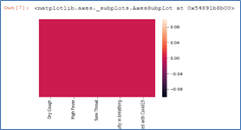A DEEP LEARNING APPROACH TO OPTIMIZING COVID-19 MORTALITY PREDICTIONS WITH RECURRENT NEURAL NETWORKS (RNNs)
DOI:
https://doi.org/10.71146/kjmr243Keywords:
COVID-19 Pandemic, Mortality Prediction, Deep Learning (DL), Clinical Severity, Recurrent Neural Networks (RNNs), Supervised Learning, Data AnalysisAbstract
The COVID-19 pandemic, caused by the SARS-CoV-2 virus, has posed significant challenges to global health since its onset in December 2019. While numerous models have been developed to predict COVID-19 outcomes, many fall short in accurately forecasting mortality rates, focusing instead on clinical severity. This study addresses these gaps by proposing an advanced approach using Recurrent Neural Networks (RNNs) to improve mortality prediction. Although existing models have employed various machine learning (ML) and deep learning (DL) techniques, they often rely on limited data sources and lack a dedicated focus on global mortality forecasting. Our research introduces RNNs as a primary tool for addressing this limitation, enhancing predictive accuracy in the context of COVID-19 deaths. The methodology involves four key phases: (1) Data Acquisition from the "COVID-19 Symptoms Dataset," which includes variables such as symptoms, confirmed cases, and death rates; (2) Data Processing, which encompasses data cleaning, visualization, and feature selection; (3) Supervised Learning using the RNN model for prediction; and (4) Performance Evaluation, where the RNN's performance is assessed in terms of accuracy, precision, recall, and F1-score. Results show that the RNN model significantly outperforms previous approaches, achieving an accuracy of 94%, precision of 92%, recall of 93%, and F1-score of 92%. This study demonstrates the effectiveness of RNNs in enhancing COVID-19 mortality predictions, providing critical insights for better global forecasting and aiding public health efforts in resource allocation and response planning.
Downloads

Downloads
Published
Issue
Section
License
Copyright (c) 2025 Fazal Malik, Hamid Ullah, Ashraf Ullah, Said Khalid Shah, Rahmat Hussain, Muhammad Javed (Author)

This work is licensed under a Creative Commons Attribution 4.0 International License.






